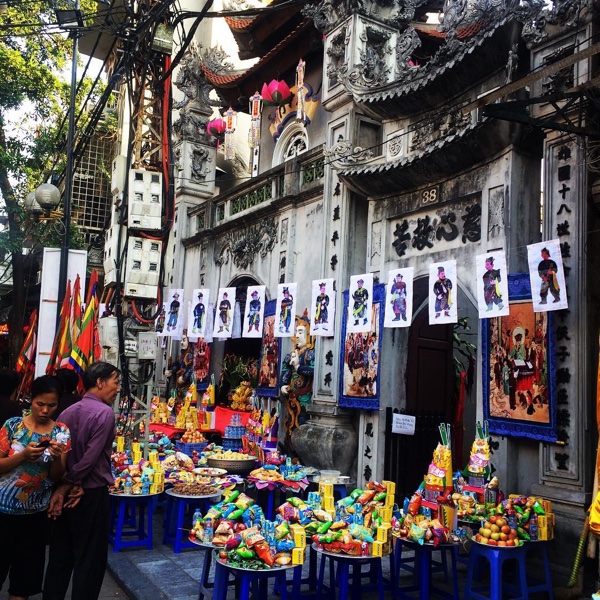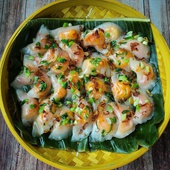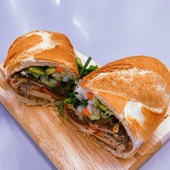Curses of the Wandering Ghosts
The Vietnamese are deeply vested in the belief of the Lunar Calendar. Despite most activities these days go on with the Gregorian one, people still keep track of the dates the old way. Many holidays and festivals are held on the occasions of the moon.
The Vietnamese people maintain a strong connection to the Lunar Calendar, despite the widespread use of the Gregorian calendar for daily activities. The traditional lunar calendar continues to play a significant role in marking various holidays and festivals.
The current month is one that evokes fear in the hearts of many. In various Asian cultures, Lunar July is associated with bad luck and curses linked to wandering lost souls. It is believed that during the first half of this month, the gate to the afterlife opens, allowing the spirits from the Lower Realm to roam the Earth. Ancestors and deceased relatives often return to visit their living descendants. However, other so-called "lost ghosts," those without families or forgotten by their descendants, wander aimlessly and bitterly. Ancestors trace their way back through the offerings and prayers of their descendants, and in gratitude, they bestow blessings of good luck. Meanwhile, the lost souls, neglected by anyone who might remember them or those who passed without proper memorials, are left empty-handed and curse living beings with misfortune.
In Vietnam, there is a widespread belief that July is the month when spirits roam and trouble can arise for anyone. Many attribute their misfortunes during this time to these spirits, significantly heightening the anxiety surrounding the month. In modern times, this belief is stronger than ever as people often refrain from starting new projects or traveling during this period. Many, particularly those of the Buddhist faith, adopt a vegetarian diet and engage in extensive prayer as it is believed that evil spirits tend to linger around individuals who do bad deeds. The atmosphere becomes somewhat like a "speak-easy," making one wary of the impending bad luck that could arise unexpectedly.
The most significant event during this month occurs on July 15th, known as the Festival of the Hungry Ghosts. During this day, Vietnamese families prepare two feasts. The first meal is typically offered around noon to honor their ancestors, while the second feast, usually served after sunset, is dedicated to the lost souls. Many individuals visit temples to pray for their deceased relatives, while monks invoke Buddha’s compassion to forgive the souls who have experienced hardships during their lifetimes and are now deemed hungry ghosts. It’s also common for attendees to bring offerings to temples, donating food intended for these wandering spirits. After monks conclude their prayers, participants often engage in a spirited competition to "fight" for the food, embracing the day as one of forgiveness and compassion. The hungry ghosts are depicted with impossibly thin necks and large bellies, forever hungry and tormented.
 People bring offerings to the temple during Lunar July - Photo: @hoangnhatplus
People bring offerings to the temple during Lunar July - Photo: @hoangnhatplus
July 15th is the only day when it is believed that these spirits are allowed to feast. As they cannot eat much, the second offering often consists of rice congee made into a soup-like consistency. Because of Buddhist principles valuing non-harm, offerings to hungry ghosts are traditionally vegan. The belief is that by feeding these spirits with plant-based foods, they may ultimately be redeemed and regain their human forms. This day is marked as one of profound compassion.
In Vietnam, it is also customary for children to burn hell banknotes and joss paper as offerings to their ancestors. These notes are thought to hold value in the spiritual realm, mimicking life on Earth. Today, these offerings can include trendy gadgets, vehicles, and even homes, symbolizing the wealth of this world being sent to the next. At the conclusion of the festival, many partake in the ritual of burning these goods to send them across. Depending on the region, people will release lotus-shaped lanterns into rivers to guide the spirits back to the afterlife. The lanterns are left to drift, and once their light extinguishes, it is believed that the spirits have found their way home. Practices surrounding these traditions can differ widely across regions, including variations in the dates celebrated.
Interestingly, July 15th also coincides with Vietnamese (Lunar) Mother's Day. On this day, people pay homage to both their living and deceased mothers. Individuals often reflect on their mother's significance and express gratitude. Those whose mothers have passed away are traditionally seen wearing white flowers, while individuals with living mothers typically wear red flowers. This straightforward yet meaningful tribute is prevalent throughout the country and highlights a unique aspect of Vietnamese culture.
Like any tradition, there are those who attempt to absolve their sins through acts of ritual. Many Vietnamese believe that hell’s gates only open once a year, leading them to pray and conduct themselves in a virtuous manner, hoping to evade consequences for their actions throughout the rest of the year. These individuals frequently fill temple spaces with generous offerings, not just on the Festival day but year-round. Unlike their less fortunate predecessors, monks today are often viewed as a well-off profession. A growing concern has emerged regarding individuals falsely representing themselves as monks, capitalizing on the fears and generosity of the public—a pressing issue in contemporary society.
Another topic that occasionally arises is the potential for inflation within the afterlife, given the abundance of hell banknotes being burned each year. With a vast amount of money sent to the deceased, one might ponder whether this practice contributes to inflation in their spiritual realm.
For those seeking a different lens through which to view this theme, National Geographic Asia recently featured a special titled "Month of the Hungry Ghosts." It includes new episodes of Is It Real and Mystery 360, which take a more analytical approach to supernatural occurrences worldwide.
Enjoy these sacred traditions! Remember to stay safe during Lunar July!

Best Things To Do In Moc Chau
Moc Chau Town is among the top-rated tourist destinations in northern Vietnam brimming with ultramodern and natural sightseeing attractions.

Vietnamese Snacks Among Best In The World
Vietnamese cuisine has long been known as among the most abundant and delicious cuisines in the world.

The Most Expensive "Banh Mi" In Ho Chi Minh City That Is Worth A Try
Long queues of Saigoneses, tourists, and shippers in front of the "banh mi" Huynh Hoa shop have long become a familiar scene every afternoon.








